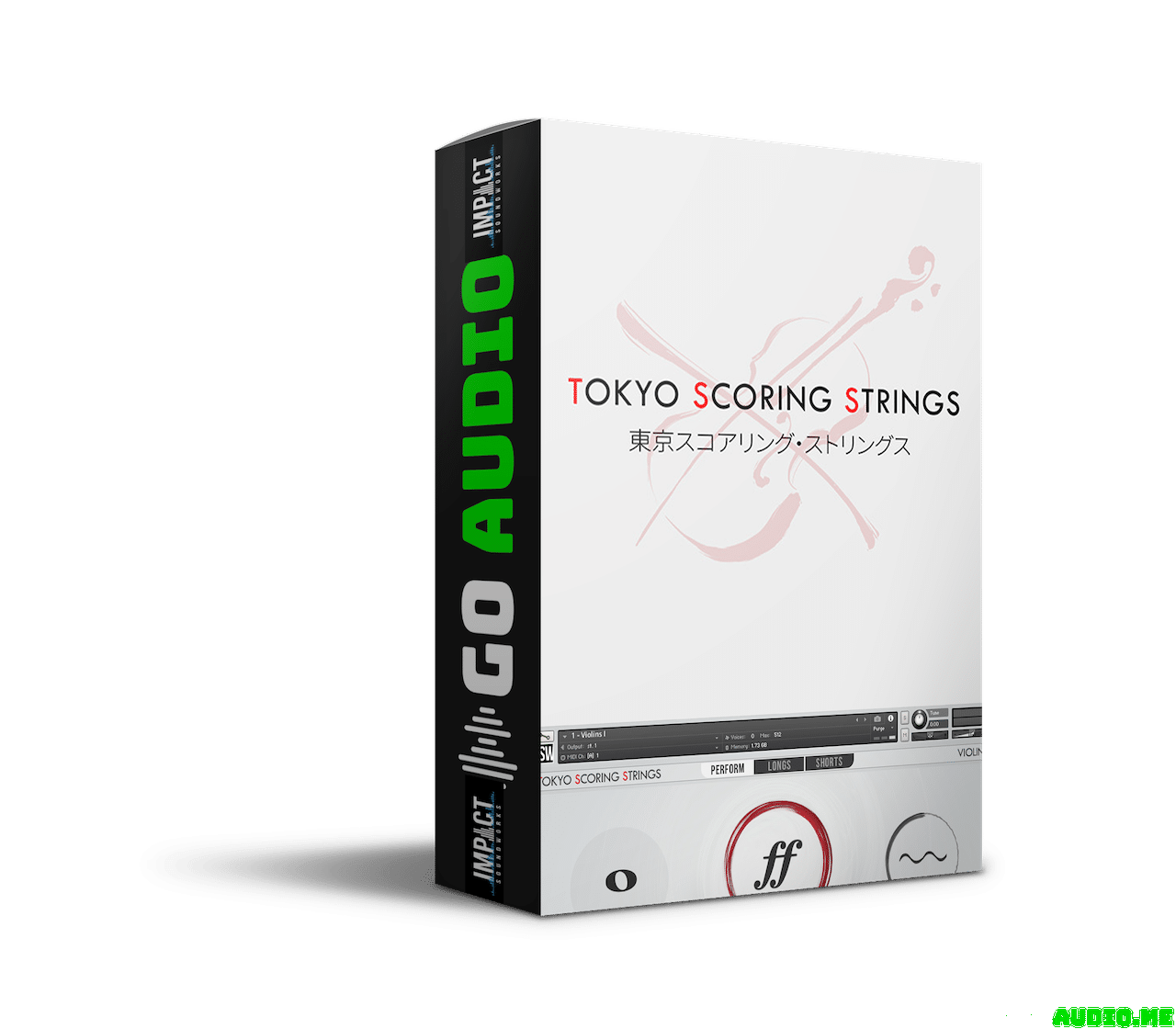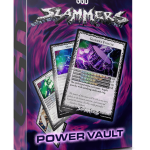Impact Soundworks Tokyo Scoring Strings v1.0.10 KONTAKT Update ONLY Welcome to our flagship orchestral string library, Tokyo Scoring Strings. Introducing the distinctive sound of Koichiro Muroya Strings, the top Japanese session string ensemble, heard on countless world-famous anime and game soundtracks. A well-rounded studio string library that holds its own across all genres, especially — but not limited to — Japanese-inspired music, Tokyo Scoring Strings features a powerful lookahead mode, incredible agility, expressive vibrato, and five identically-sampled string sections for you to easily realize virtually any score.
Welcome to our flagship orchestral string library, Tokyo Scoring Strings. Introducing the distinctive sound of Koichiro Muroya Strings, the top Japanese session string ensemble, heard on countless world-famous anime and game soundtracks. A well-rounded studio string library that holds its own across all genres, especially — but not limited to — Japanese-inspired music, Tokyo Scoring Strings features a powerful lookahead mode, incredible agility, expressive vibrato, and five identically-sampled string sections for you to easily realize virtually any score.
About the Library
The sound of Japanese strings is both captivating and highly unique. What makes it so distinctive? Smaller ensembles recorded in focused studio spaces lend themselves to more agile playing, and a focus on perfection leads to incredible accuracy. These strengths make Japanese ensembles equally capable of delicate nuance and sweeping emotional performances that move listeners to tears. For many of us who have admired Japanese soundtracks for years, this sound has long been a source of inspiration, but it’s been out of reach for most composers outside of Japan — until now.
Our goal with Tokyo Scoring Strings is to give you the orchestral string sound featured in so many world-famous Japanese productions. This project has been a dream come true for all of us at Impact Soundworks, and we’re thrilled to have worked with some of our musical heroes to bring it to life. But we weren’t satisfied with just capturing this remarkable sound; we also sought to deliver an outstanding, inspiring UI, flexible editing, beautiful legato, and recording depth to rival any other industry-standard string libraries.
Our Japanese Partners
We are honored to have partnered with an incredible team of musicians and collaborators in Japan:
– Koichiro Muroya Strings, led by Koichiro Muroya. The most in-demand session ensemble in all of Japan. Their exquisite playing can be heard on many of your favorite soundtracks.
– Mitsunori Aizawa, Japan’s top engineer, responsible for mixing and recording hundreds of world-famous scores.
– Sound City, an incredible recording space with over 60 years of history. This choice of studio gives Tokyo Scoring Strings a tighter, more focused sound that lends itself extremely well to more agile playing and mixing with external reverb.
– Renowned anime & film composer Masaru Yokoyama, who brought his experience recording scores around the world through his companies Plugnote and MiracleBus.
-Crypton Future Media and SonicWire, our Japanese distributors who have helped with the project from the very beginning.
Articulations & Content
Tokyo Scoring Strings features five independently recorded sections (Violins 1, Violins 2, Viola, Cello, Bass) in a typical Japanese ensemble size (8/6/4/4/3) suitable for small and large productions alike.
Tokyo Studio Strings includes a well-rounded set of articulations recorded in superb detail. We have paid particular attention to delivering outstanding legato as well as the agility and crisp short notes that are such a strength of smaller Japanese string sections. You’ll be able to easily write and mock-up sweeping melodies, intimate legato, and aggressive agile passages.
Note: All articulations below are true, unique recordings, not created by re-pitching or processing other samples!
Console Modular FX Rack & Mixer
Console is a fully-featured mixer, modular effects rack, and pedal board, designed to give you full control over your mix. Effects include multiple EQs (digital and analog-style), compressors, spatial FX, modulation FX, amps, distortion pedals, reverbs, and more.
Each mic channel can be loaded with up to 8 FX in any order, plus another 8 slots on the master channel, with support for send routing as well. The new “Galois Reverb” added in Kontakt 6 Player sounds fantastic as an alternative to our included custom IRs.
Five orchestral string sections
8 violins 1, 6 violins 2, 4 violas, 3 cellos, 3 basses.
Four mic positions in a legendary space
Pristine 24-bit, 48kHz samples (downmixed from 96kHz) captured at Sound City: Close, Room, Decca, and Surround.
Mitsunori Aizawa’s board mix
Custom, pre-mixed sample set that delivers Aizawa’s personal sound out-of-the-box.
All crucial playing techniques
Sustains, pizzicato, staccato, staccatissimo, spiccato, spiccato secco, tremolo, harmonics, trills (whole-tone, half-tone), long & short decrescendo and sforzando.
Expressive dynamics, legato, and vibrato
Two legato and portamento types, multiple speeds, three vibrato levels (senza, con, molto), and up to five dynamics per articulation.
CHANGELOG
Version 1.0.10
Fixed lookahead CC11 synchronization
—————————————
Version 1.0.9
Fixed location of files from 1.0.8 update
—————————————
Version 1.0.8
Added workaround for Kontakt 7.6.1 bug affecting CC11 mapping
—————————————
Version 1.0.7
– Default settings updated to preserve more room sound in short articulations.
– Fixed abrupt attack cut-in on Contrabasses Decrescendo Long articulation.
—————————————
Version 1.0.6
Worked around a KSP bug which caused instruments to produce hanging voices after several minutes of use
—————————————
Version 1.0.5
Fixed issues with sample offset (cut-off samples) in various patches
—————————————
Version 1.0.4
FIXED: ‘Cello Spiccato Secco D1 V2 RR01’ Late Start-time has been corrected.
FIXED: Inconsistent Velocity -> Volume behavior on some articulations. Corrected for the current intended behavior, all Longs + Sfz/Dec are controlled by Dynamics (CC1), and all Shorts are controlled by Velocity.
FIXED: We discovered Cubase users by default have a 2-tick gap between touching MIDI Notes, which prevented Lookahead’s legato detection from working properly. Lookahead now accounts for an extra 2 ticks.
FIXED: Attack overlays now properly are faded out when playing legato lines. Before, long overlays like the Sfz 1/4 would continue ringing long after notes transitioned.
FIXED: Previous Library Pane graphic had corrupted Kanji in the logo.
—————————————
Version 1.0.3
Reduced RAM usage for all patches across the board by adjusting patches & scripts. Improved behavior of attack overlay scaling, especially with niente enabled. Improved sound of fast legato releases. Viola D3 spiccato note fix (incorrect root key). Small lookahead timing adjustments.
—————————————
Version 1.0.2
Fixed multis, Lookahead with leg speed off is no longer reset by portamento, fixed sfz/dec behavior from modwheel, added sfz long/short overlay options for arco (etc), added missing help text for certain tabs and mapping controls, fixed violins 2 mic mixer close/decca sharing same bus, Kontakt purge should work again
—————————————
Version 1.0.1
NKR hotfix for short note cutout issue
—————————————
Version 1.0.0
Release version
Homepage:-https://impactsoundworks.com/product/tokyo-scoring-strings/








![Toontrack Hollowbody EBX [WIN+MAC]](https://www.goaudio.net/wp-content/uploads/2024/09/Toontrack-Hollowbody-EBX-150x150.png?v=1726103695)
![Toontrack LATEST RELEASES MIDI BUNDLE [SEP 2024]](https://www.goaudio.net/wp-content/uploads/2024/09/gandr-collage-11-150x150.jpg?v=1725764744)
![Blockbuster Sound Sand Dune & Mockingbird [BUNDLE]](https://www.goaudio.net/wp-content/uploads/2024/08/blockbuster-sound--150x150.png?v=1724378090)

![Blockbuster Sound Mermaids Sirens & Horror Pack [BUNDLE]](https://www.goaudio.net/wp-content/uploads/2024/08/Blockbuster-Sound-150x150.png?v=1723854097)



![Toontrack LATEST MIDI PACK [APRIL 2025]](https://www.goaudio.net/wp-content/uploads/2025/04/Toontrack-LATEST-MIDI-PACK-APRIL-2025-150x150.png?v=1745120673)
![Roland Cloud AIRA Series 2025.04.18 [MAC]](https://www.goaudio.net/wp-content/uploads/2025/04/Roland-Cloud-AIRA-Series-2025.04.18-150x150.jpg?v=1745034105)
![Roland Cloud Drum Machine Collection 2025.04.18 [macOS]](https://www.goaudio.net/wp-content/uploads/2025/04/Roland-Cloud-Drum-Machine-Collection-2025.04.18-150x150.jpg?v=1745033618)
![Roland Cloud SRX Series 2025.04.18 [MAC]](https://www.goaudio.net/wp-content/uploads/2021/12/Roland-Cloud-SRX-Series-v2021.12-150x150.png?v=1640303802)